MK-2866 in Grapeseed Oil Solubility Test and Conclusion
As part of our ongoing investigation into household-accessible solvents for dissolving MK-2866 (Ostarine), grapeseed oil emerged as our next candidate. Known for its light texture and health benefits, grapeseed oil is a common plant-based oil that’s both popular and easy to obtain. In this experiment, we set out to test the solubility of 1 gram of MK-2866 in grapeseed oil, evaluating whether it could serve as a viable solvent.
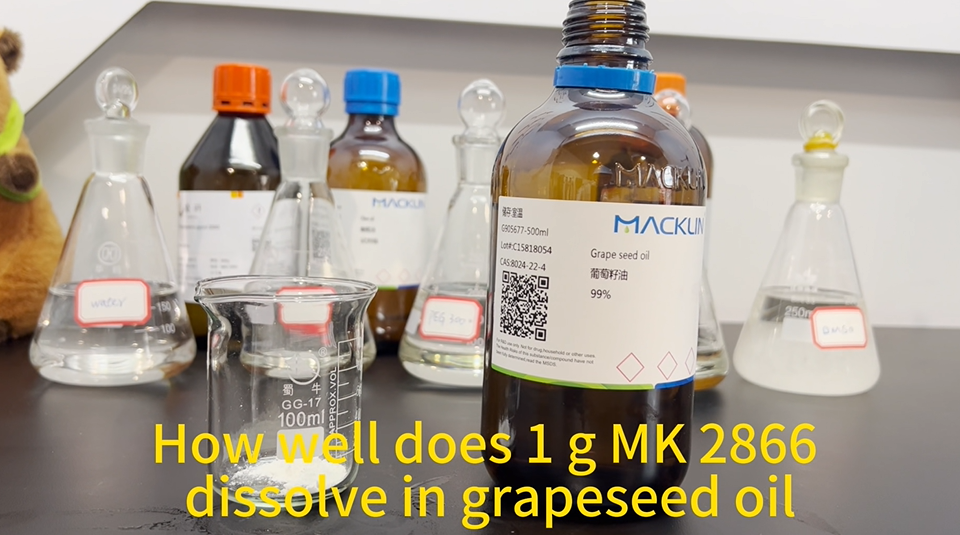
Initial Test: 1ml Grapeseed Oil
We started with the smallest dose, adding 1ml of grapeseed oil to 1 gram of MK-2866 powder and letting it sit for observation. After ample time had passed, it was clear that no dissolution had occurred. The powder remained fully suspended in the oil, showing no signs of merging or dissolving into the liquid.
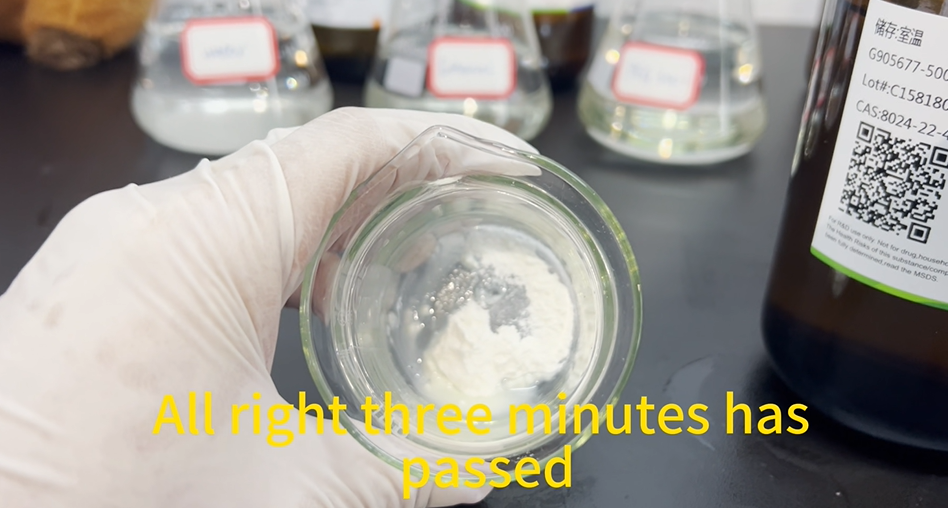
Further Test: Increased to 10ml
We increased the amount of grapeseed oil to 10ml and stirred the mixture thoroughly to promote interaction. However, the results were still disappointing. The solution became cloudy, closely resembling the results observed in the olive oil tests. The powder continued to float throughout the liquid without forming a true solution.
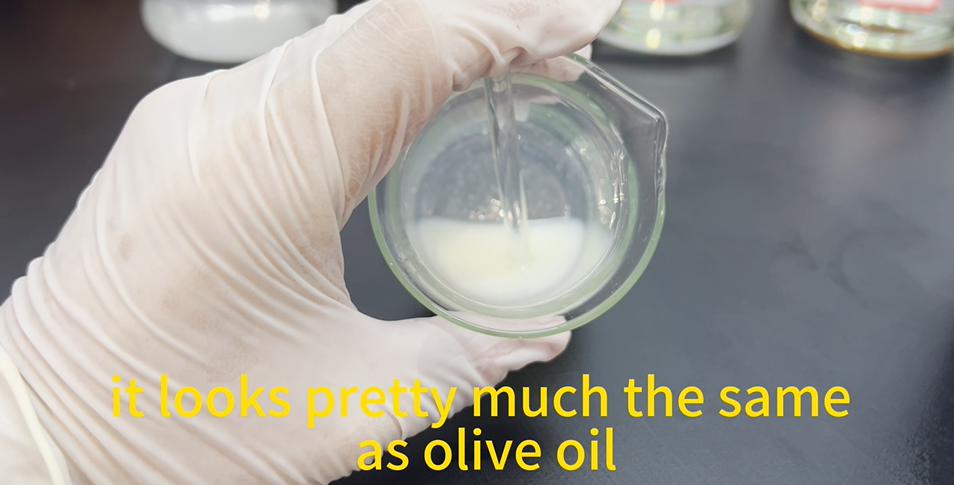
Extended Test: Increased to 20ml
To test whether a higher solvent-to-powder ratio could enhance solubility, we raised the grapeseed oil volume to 20ml and stirred again. The outcome remained largely unchanged—the liquid stayed cloudy and opaque, showing no improvement in clarity or dissolution. Clearly, even at this ratio, grapeseed oil was not effectively dissolving MK-2866. This raised further doubts about its suitability as a solvent.
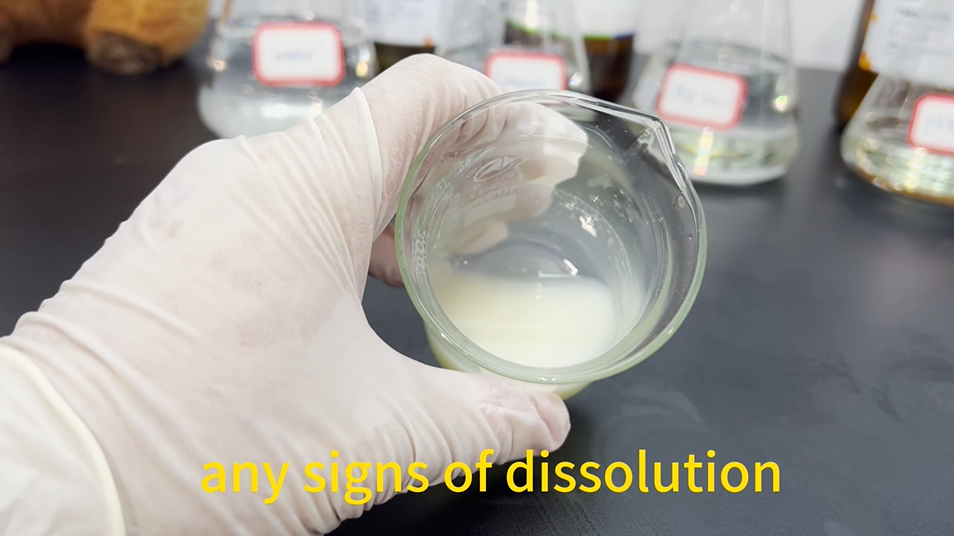
Final Test: Increased to 50ml
To ensure the test was comprehensive and conclusive, we carried out a final attempt using 50ml of grapeseed oil. After thorough mixing, the solution still remained cloudy and opaque, with no signs of becoming a clear, homogeneous solution. It was evident that even with this much solvent, MK-2866 could not be dissolved effectively.
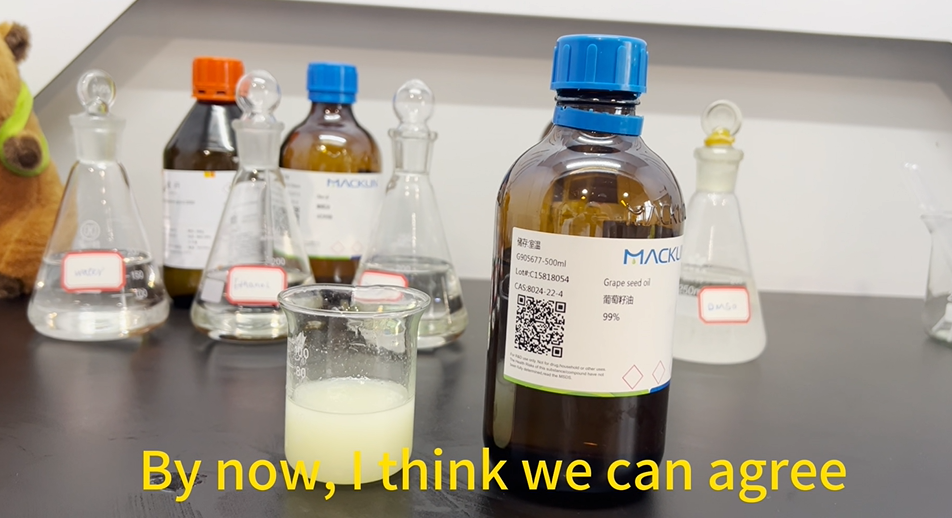
Experimental Results and Conclusion
From the tests above, we reached a clear conclusion: grapeseed oil exhibits poor solubility for MK-2866. Even when using up to 50 times the amount of solvent, the compound could not be fully dissolved. This indicates that grapeseed oil is not a suitable solvent for dissolving MK-2866.
Comparison with Other Solvents
Compared to previously tested solvents such as DMSO and PEG300, grapeseed oil's solubility performance is extremely limited. This could be attributed to the chemical nature of MK-2866 and the polarity mismatch with grapeseed oil. While oil-based solvents can sometimes work well with hydrophobic compounds, grapeseed oil clearly fell short in this case.
Although the results were underwhelming, this experiment still provided valuable data. It allowed us to eliminate grapeseed oil as a viable solvent and highlighted the importance of choosing the right solvent for optimal compound performance and bioavailability.
